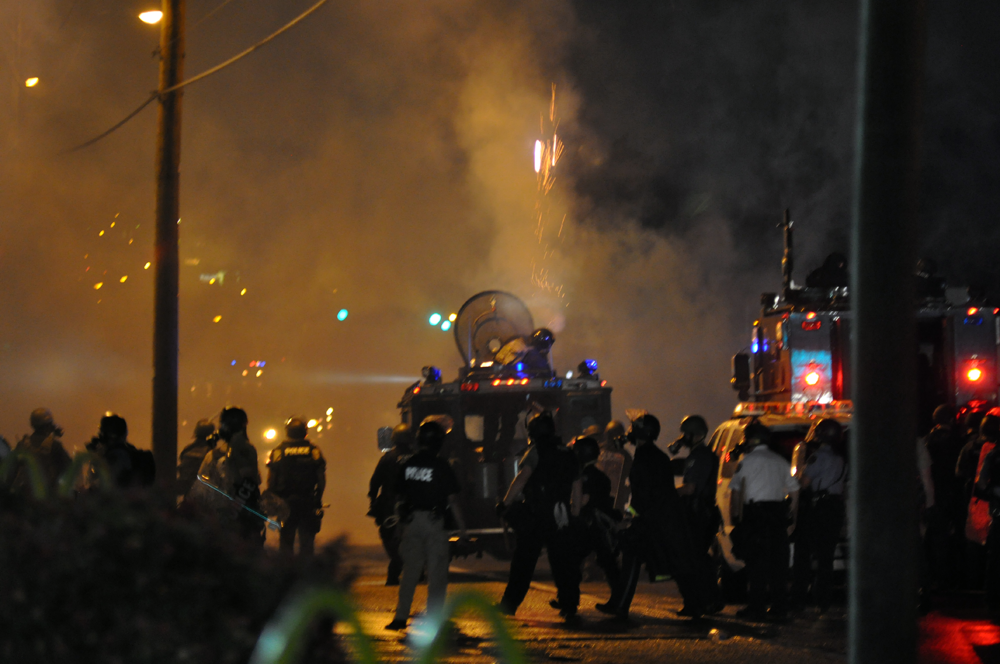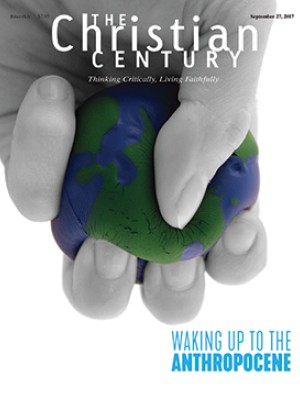Trump's "law and order" is about neither one
Impunity for Joe Arpaio makes good policing harder. So does access to military gear.

Late on Friday, August 25, with the news networks focused on the hurricane approaching Texas, the Trump administration announced the president’s pardon of Joe Arpaio. The infamously cruel former sheriff of Maricopa County, Arizona, was found guilty in July of criminal contempt of court after ignoring a federal order to stop profiling Latinos. Trump’s pardon weeks later bypassed the usual review process completely.
A few days later, the administration announced it would reverse a 2015 rule limiting the flow of used military gear to local police. The rule was put in place following the events in Ferguson, Missouri, when protests of the police shooting of Michael Brown were met with an overwhelming show of force. Trump wants more heavy artillery in American streets, not less.
Read our latest issue or browse back issues.
Both moves reflect a consistent thread in Trump’s thinking: his uncritical loyalty not just to police but to the most extreme, authoritarian policing tactics. In a July speech, Trump even encouraged officers to be less careful about hurting suspects during arrests. And he sarcastically mocked those who might object that “you’re not allowed to have rough people doing this kind of work.”
But civil libertarians aren’t the only ones who object. So do a lot of police departments—as evidenced by their outcry after the July speech. After all, they have an important and difficult job to do. They enforce the rule of law, protect people’s rights, and build relationships with communities. And while many police have cheered Trump’s apparent belief that they can do no wrong, others understand that such an attitude makes it harder for them to do the job right.
Arpaio terrorized the Latino community around Phoenix, and this brutal campaign had other costs, too. He spent millions settling lawsuits brought by inmates in his horrifying jails. He left sexual assault allegations uninvestigated, despite a contract paying his office specifically to handle them. Crime went up in his jurisdiction, even as it went down in others nearby. Arpaio ignored his duties while devoting his energy to abusing his power.
Heavy weaponry isn’t good for policing, either. It doubles down on the historical shift from a “social peacekeeper” model to a “crime fighter” model—a shift that alienates the police from the public, as former officer Tobias Winright has argued in the Century (“Militarized policing,” Sept. 17, 2014). People don’t trust an occupying force. That’s why at least one big department—Los Angeles—is turning down the administration’s offer. The LAPD says it wants to “ensure the trust of the community” instead.
Trump appeals to “law and order,” but he’s no champion of the rule of law or the orderliness of social peace. He repeatedly supports the impunity of law enforcement at its most extreme. The sinister invocation of law and order has a long and ignoble history in American politics, but rarely has this rhetoric been wielded by a leader with such evident contempt for both law and order.
A version of this article appears in the September 27 print edition under the title “Unpardonable contempt.”





